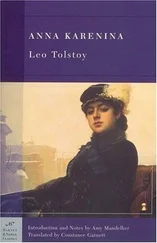Levin studied Vronsky. There are people who, on meeting a successful rival, no matter in what, are at once disposed to turn their backs on everything good in him, and to see only what is bad. There are people, on the other hand, who desire above all to find in that lucky rival the qualities by which he has outstripped them, and seek with a throbbing ache at heart only what is good. Levin belonged to the second class. But he had no difficulty in finding what was good and attractive in Vronsky. It was apparent at the first glance. Vronsky was a squarely built, dark man, not very tall, with a good-humored, handsome, and exceedingly calm and resolute face. His belt line was marked by two large smoker holsters; the electric crackle of a hot-whip laced around his upper thigh, a coiled cord of restrained power, waiting only for the flick of the master’s thumb to snap to life, whereupon it would pour upward into the air, crackling with deadly potential. Vronsky’s Class III, like all those awarded to border officers, was a simulative animal, in this case, one built in the shape of a powerful, silver-trimmed black wolf. Everything about Count Vronsky’s face and figure, from his short-cropped black hair and freshly shaven chin down to his loosely fitting, brand-new uniform, was simple and at the same time elegant. Making way for the lady who had come in, Vronsky went up to the princess and then to Kitty.
As he approached her, his beautiful eyes shone with a specially tender light, and with a faint, happy, and modestly triumphant smile (so it seemed to Levin), bowing carefully and respectfully over her, he held out his small broad hand to her.
Greeting and saying a few words to everyone, he sat down without once glancing at Levin, who had never taken his eyes off him.
“Let me introduce you,” said the princess, indicating Levin. “Konstantin Dmitrich Levin, Count Alexei Kirillovich Vronsky.”
Vronsky got up and, looking cordially at Levin, shook hands with him.
“I believe I was to have dined with you this winter,” he said, smiling his simple and open smile, “but you had unexpectedly left for the country.”
“Konstantin Dmitrich despises and hates the town and us townspeople,” said Countess Nordston.
Levin hoped again to make a graceful exit from the Shcherbatskys’ drawing room, and he rose and nodded meaningfully to Socrates, who gathered up his master’s coat from the II/Footman/74 of the household. In the next moment, however, they were trapped by Countess Nordston’s sudden announcement of a most tedious exercise.
The countess, much to Levin’s annoyance, had long been a fervent believer in a race of extraterrestrial beings called the Honored Guests; members of this faith had created over several decades an elaborate xenotheology, which held at its core that the Honored Guests were for now merely a watchful benevolent presence, but one day they would arrive to bless the human race with their munificence.
“They will come for us,” intoned Countess Nordston, invoking the central creed of the faith. “In three ways they will come for us.” Tonight, the countess declared, due to the sudden and furious electrical storm raging outside, was an excellent evening to provoke a brief and healing contact with one of these benevolent light-beings, through an elaborate ceremony.
“Before we begin,” Countess Nordston continued. “I must know if the psychic energy of our shared space is primed for the arrival of the Honored Guests.” Courtesana then rotated her head unit three times, and beeped accusingly at Levin and Socrates. “Konstantin Dmitrich, do you believe in it?” Countess Nordston asked Levin.
“Why do you ask me? You know what I shall say.”
“But I want to hear your opinion.”
“My opinion,” answered Levin, “is only that this alien-communing simply proves that educated society-so called-is no higher than the peasants. They believe in the evil eye, and in witchcraft and omens, while we stand in drawing rooms making circles with our hands raised, chanting obscurely, every time a lightning storm happens to raise the level of electricity in the air.”
“Oh, then you don’t believe in it?”
“I can’t believe in it, Countess.”
“But if I’ve seen them myself?”
“The peasant women, too, tell us they have seen goblins.”
“Then you think I tell a lie?”
“Oh, no, Masha, Konstantin Dmitrich said he could not believe in it,” said Kitty, blushing for Levin. Levin saw this, and, still more exasperated, would have answered, but Vronsky with his bright, frank smile rushed to the support of the conversation, which was threatening to become disagreeable.
“You do not admit the conceivability at all?” he queried. “But why not? We admit the existence of groznium, a wondrous alloy unimagined before the time of Tsar Ivan. Why should there not be some new beings, still unknown to us, which…”
“When groznium was discovered,” Levin countered hotly, “it was found, after careful experimentation over many years, to hold all those useful qualities originally claimed of it by its champions. Far from being the stuff of parlor games and hopeful acolytes, it has revolutionized every sphere of Russian life!”
Vronsky listened attentively to Levin, as he always did listen, obviously interested in his words.
“Yes, but the xenotheologists such as the Countess only say we don’t know at present what these beings are, only that such beings do exist,” he argued mildly, “And these are the conditions in which they might appear to us.”
As if to reinforce Vronsky’s point, the sky just then began to rumble with thunder, and a bolt of lightning leapt forth from the clouds outside the Shcherbatskys’ big front window.
“Let the scientific men find out what these aliens might be,” Vronsky continued. “No, I don’t see why there should not be a new race somewhere in the universe, if we found a new metal …”
“Why, because with groznium,” Levin interrupted again, “all the promises of its potential have been proven! It has allowed for every positive change in our society! Every easeful thing, every moment of leisure we enjoy thanks to the helpful machines that do such work for us-all this we owe to groznium: the Grav, the transports, the robots-!” He gestured with energy at the ring of quiet and attentive Class IIIs, who stood in a respectful semicircle at the outskirts of the room.
But the conversation had ended, and the ceremony, so nonsensical to Levin, began. It took more than an hour of chanting and elaborate prayers before the ceremony was concluded-abruptly, and to Levin’s secret pleasure-when Countess Nordston threw open the parlor window to urge the Honored Guests to be swift in blessing us with their presence, but all that entered the Shcherbatskys’ magnificent front room was rain.
VRONSKY SAT UP that night, viewing Memories in the monitor of his Class III, which was located in a smooth, furless patch of the animal’s exterior, where the “soft underbelly” of a real Canis lupus would be found.
Alexei Kirillovich had never had a real home life. His mother had been in her youth a brilliant society woman, who had had during her married life, and still more afterward, many love affairs notorious in the whole fashionable world. His father he scarcely remembered, and he had been educated in the Regimental Underschool, where he was assigned and instructed in his special military issue Class III, soon growing to cherish the ersatz hunting wolf with its thick collar of bristling metal “fur” and menacing voice-box growl.
Leaving the school very young as a brilliant officer, after a distinguished six-month tour along the border, Vronsky had at once gotten into the circle of wealthy Petersburg army men. Although he did go more or less into Petersburg society, his love affairs had always hitherto been outside it. In Moscow he had for the first time felt, after his luxurious and coarse life at Petersburg, all the charm of intimacy with a sweet and innocent girl of his own rank, who cared for him. It never even entered his head that there could be any harm in his relations with Kitty. At the floats he danced principally with her. He was a constant visitor at their house. He talked to her as people commonly do talk in society-all sorts of nonsense, but nonsense to which he could not help attaching a special meaning in her case. Although he said nothing to her that he could not have said before everybody, he felt that she was becoming more and more dependent upon him, and the more he felt this, the better he liked it, and the more tender was his feeling for her. He did not know that his mode of behavior in relation to Kitty had a definite character, that of courting young girls with no intention of ever marrying, and that such courting is one of the evil actions common among brilliant young men such as he was. It seemed to him that he was the first who had discovered this pleasure, and he was enjoying his discovery.
Читать дальше












